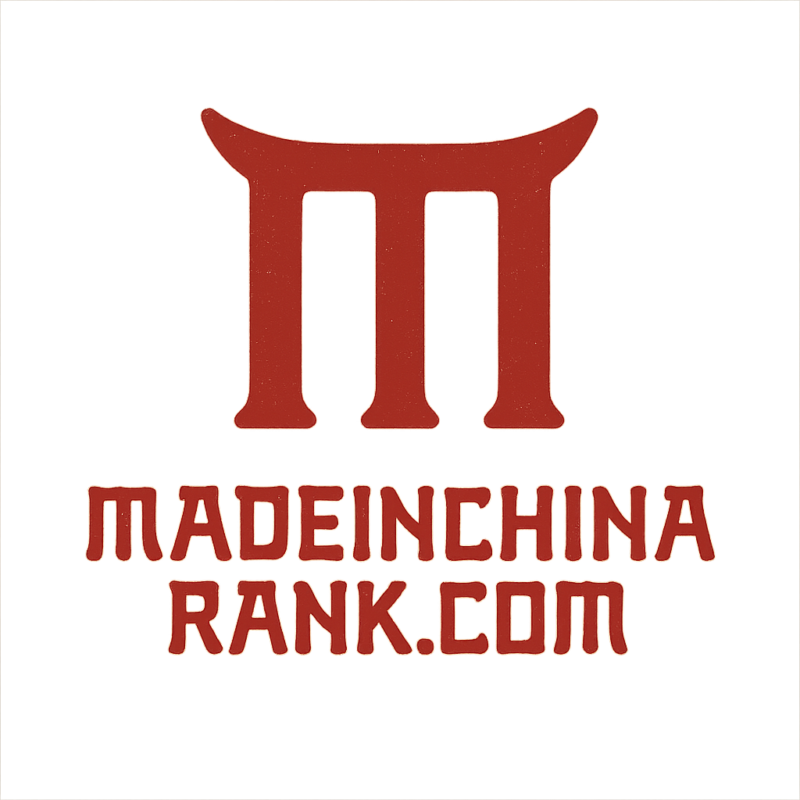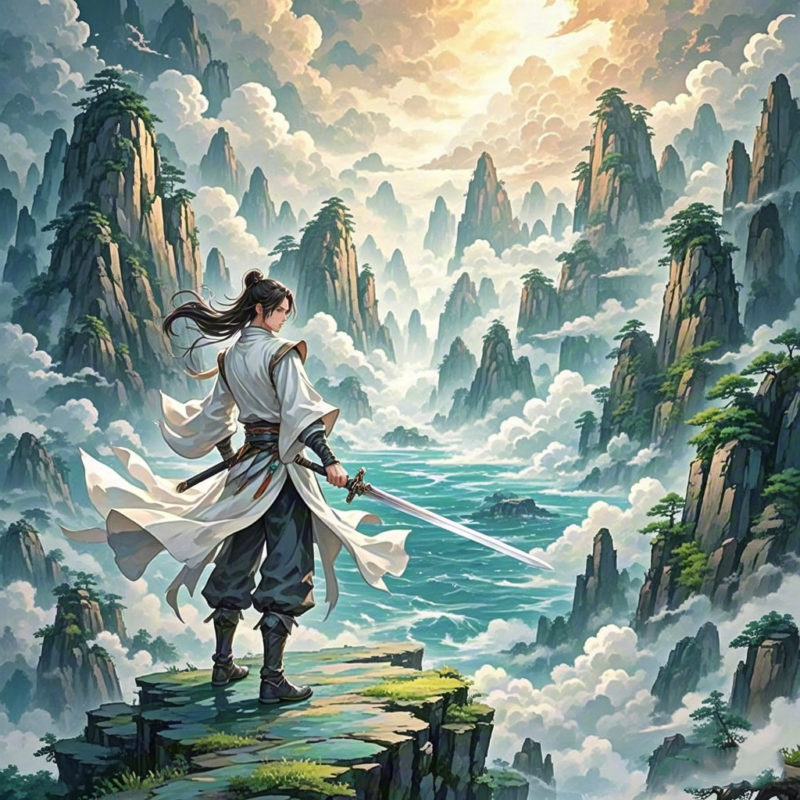1. The Enduring Appeal of Xianxia in Modern China
The xianxia genre, deeply rooted in Chinese mythology, Daoist philosophy, and martial arts traditions, continues to enchant readers in 2024 with its intricate world-building, philosophical undertones, and epic narratives of personal ascension and transcendence. As digital platforms, such as Qidian, Zongheng, and 17k, continue to thrive, xianxia literature has not only remained popular but evolved, adapting to new storytelling formats and expanding into international markets.
Today’s xianxia is no longer limited to traditional tropes like pill refining, sect wars, and heavenly tribulations. Instead, authors are incorporating elements of dark fantasy, post-apocalyptic settings, and even cyberpunk into their cultivation universes, creating stories that speak to contemporary anxieties while maintaining the allure of immortality and spiritual evolution.
2. Most Anticipated: Heavenbreaker Chronicles by Xue Qinghe
Among the most widely celebrated new xianxia novels of 2024, “Heavenbreaker Chronicles” by Xue Qinghe has captivated a wide audience with its blend of ancient mysticism and cosmic existentialism. Set in a universe where the heavens have collapsed and cultivators must now rebuild the celestial order themselves, this novel offers a narrative rich with metaphysical conflict and philosophical depth.
The protagonist, Yuan Zichen, is not a traditional underdog. Born in a forbidden domain and marked by “Heaven’s Wound,” he becomes the target of both gods and devils. But instead of climbing the ladder of power through brute strength or alchemical genius, he seeks to reconstruct the rules of Dao itself, challenging the inevitability of karma and reincarnation.
Narrative Strengths and Themes
-
World-building: The Nine Fractured Realms are meticulously designed, each representing a philosophical school (e.g., Nihilism, Empiricism, Idealism), allowing the author to explore abstract thought through physical cultivation trials.
-
Cultivation System: The “Shattered Dao” system introduces fragmented laws of nature that cultivators must merge and harmonize, making every breakthrough unique to the individual’s comprehension of reality.
-
Reception: On Qidian, it reached 12 million monthly views within three months and has already been signed for animation adaptation by Tencent.
3. Return of the Fallen Sword: Revisiting the Hero’s Path
If 2023 was the year of experimentation, 2024 has seen a strong return to classic sword cultivation narratives, most notably in “Return of the Fallen Sword” by Gu Jianxian. This novel follows Li Heng, a disgraced sword cultivator exiled after failing a celestial ascension 1,000 years ago, who reincarnates into a boy from a declining sect in a distant mortal plane.
This is an homage to the golden era of xianxia, where sword intent and karmic battles dominate the landscape. However, Gu Jianxian infuses the tale with emotional gravitas and moral ambiguity. Li Heng must decide whether to uphold his former idealism or embrace the cruel pragmatism of this age.
Swordplay and Sentimentality
-
Sword Intent: Each cultivator’s sword manifests their soul’s deepest burden, and battles are as much about emotion as they are about technique.
-
Secondary Cast: Unlike earlier xianxia where side characters serve only to advance the protagonist, this novel gives considerable development to Li Heng’s disciples, love interest, and old enemies.
-
Legacy and Redemption: A recurring theme is the weight of one’s past life and how cultivation is not only spiritual ascension but moral reconciliation.
4. The Cyber-Immortal: Xianxia Meets Sci-Fi
Perhaps the boldest conceptual blend in 2024’s literary landscape is “The Cyber-Immortal” by Mo Yanyue, which envisions a world where traditional cultivation has fused with machine consciousness. In the post-Eschaton era, cultivators interface directly with cosmic servers known as “The DaoNet,” allowing spiritual ascension through digital enlightenment.
The protagonist, Yun Xi, is a rogue cultivator-hacker who unearths fragments of the original Dao algorithm hidden in forgotten code libraries across the Quantum Realm. With each enlightenment, he unlocks a new synthesis of spiritual law and digital logic, challenging the dominance of the ancient Sect of Silicon Immortals.
Themes of Identity and Modern Alienation
-
Digital Daoism: Questions about free will, digital identity, and artificial enlightenment are explored through technological metaphors of classic xianxia principles.
-
Antagonists: The sect leaders are not merely obstacles but representations of failed utopias—an interesting twist on the “corrupt elders” trope.
-
Narrative Format: Some chapters are presented as fragmented server logs, which readers decode alongside the protagonist, creating a layered reading experience.
“The Cyber-Immortal” has become a cult favorite among young urban readers, especially in tier-1 Chinese cities, where its cyberpunk aesthetic resonates with the tension between tradition and digital modernity.
5. Female Protagonist Power: Lotus Reign in the Celestial Abyss
2024 has also seen a powerful surge in female-led xianxia novels, with “Lotus Reign in the Celestial Abyss” by Fei Linghua at the forefront. The novel follows Princess Lin Yue, who dies tragically during a political betrayal and is reborn in the Lotus Abyss—a forbidden realm ruled by sentient plants and ancient resentments.
Rather than focusing on revenge or power accumulation through sectarian conflict, this story emphasizes healing, ecological harmony, and spiritual renewal. Lin Yue’s cultivation path is one of inner purification and rebirth, rooted in feminine Dao principles and yin-based techniques rarely highlighted in male-dominated xianxia works.
Key Contributions to the Genre
-
Feminine Dao: Incorporates yin-based cultivation, emphasizing fluidity, intuition, and emotional clarity over aggression and brute force.
-
Spiritual Ecology: The flora, fauna, and spiritual beings in the Lotus Abyss are interconnected in karmic webs, and Lin Yue’s cultivation requires understanding their harmony.
-
Cross-Demographic Appeal: This novel has drawn both xianxia veterans and newer readers, especially women aged 18–35, reflecting a shifting readership in the genre.
6. The Dao Is a Lie: Deconstruction of the Cultivation Mythos
An especially noteworthy trend in 2024 has been the philosophical deconstruction of xianxia tropes, best exemplified by “The Dao Is a Lie” by Hong Tu. This daring and polarizing novel tells the story of Meng Zui, a cultivator who after reaching the pinnacle of cultivation realizes the Dao he’s been pursuing was an illusion fabricated by cosmic entities to control sentient life.
This novel is not about breakthrough stages or fighting demons, but about existential crisis and rebellion against metaphysical frameworks. Meng Zui’s journey is internal, psychological, and often surreal, with entire chapters reading like poetic dreamscapes or dialogues with silent gods.
Experimental and Introspective
-
Narrative Structure: Non-linear timelines, unreliable narration, and metafictional chapters that break the fourth wall to question the reader’s assumptions about morality and transcendence.
-
Themes: Destiny versus free will, the commodification of enlightenment, and the silence of the heavens as spiritual betrayal.
-
Reception: While critically praised, it has divided fans—some herald it as the future of xianxia, while others call it sacrilegious.
“The Dao Is a Lie” challenges readers to question the very foundation of cultivation, making it a cerebral alternative to more traditional stories.
7. Rising Stars and Web Authors to Watch
Beyond the big names and breakout hits, 2024 has introduced a fresh wave of young xianxia authors, many of whom emerged from online communities and indie publishing platforms. Their work is notable for genre blending, regional myths, and hybrid cultivation systems.
Notable Newcomers:
-
Luo Zeyan’s “Immortal Under the Moon’s Reflection”: A poetic cultivation tale rooted in southern Chinese folklore, featuring moonlight-based sword techniques and ghostly romance.
-
Xu Bai’s “Ink Soul Sect”: Centers around spiritual ink cultivation, where characters channel their Dao through calligraphy—turning brush strokes into lethal techniques and memory-sealing runes.
-
Jin Nian’s “Apothecary of the Forgotten Lands”: A dark and morally complex story where an outcast alchemist revives forbidden ancient medicines, each with unintended cosmic consequences.
These authors have brought fresh perspectives to xianxia, reflecting regional diversity, emotional nuance, and a desire to experiment with narrative form. Several of them have found massive followings through serialized releases on WeChat and Bilibili literature channels.
In 2024, the world of xianxia continues to transcend its traditional boundaries, embracing not only modern philosophies and aesthetics but also a new generation of readers and writers. Whether through cybernetic heavens, sword immortal legacies, or metaphysical rebellions, Chinese xianxia novels remain a profound space for exploring humanity’s desire for growth, freedom, and transcendence—making the genre more alive than ever.

